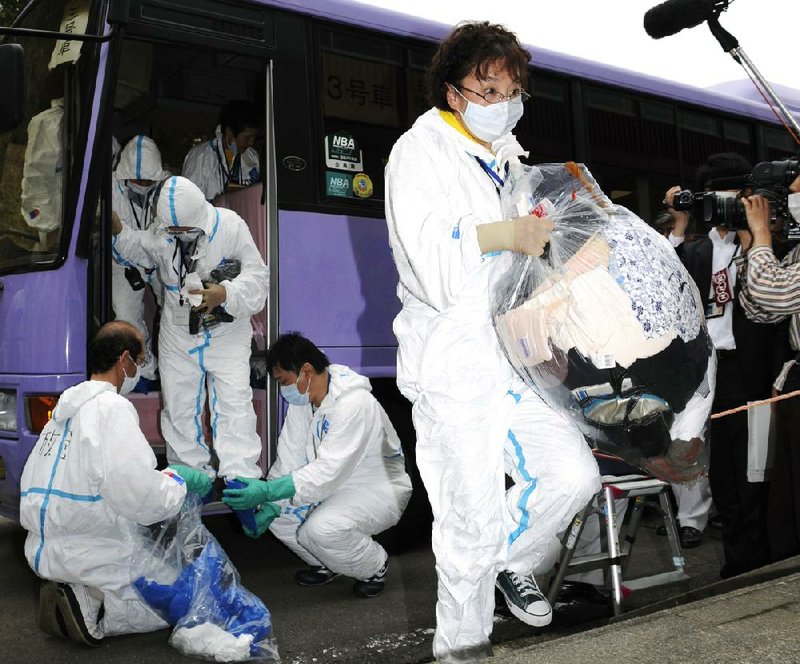BAMAKO, Mali — Mali’s coup leader responded to the threat of sanctions Friday by saying he plans to hold elections and rapidly return the country to its established order but gave no timetable for immediate action, falling short of demands by West African countries.
Mali’s neighbors Thursday gave the captain a 72-hour deadline to hand power back to civilians or else face severe consequences, including the closing of borders to the landlocked nation and the freezing of the country’s account at the regional central bank.
If the measures go into effect, they will be among the toughest imposed on a state in West Africa, where coups, or attempted coups, are still a near-yearly occurrence.
Amid the turmoil, Tuareg rebels in the country’s north pushed Friday into the strategic town of Kidal, according to Lt. Samba Timbo, the chief of security for junta leader Capt. Amadou Haya Sanogo. Kidal, a garrison town, is a major prize for the Tuareg separatists who launched a rebellion in January with the aim of carving out a homeland in Mali’s desolate north.
In Bamako, the capital, Sanogo emerged for the first time since the threat of sanctions was announced, telling reporters he “understands” the position of the regional body, the Economic Community of West African States, or ECOWAS. At the same time, he said he wanted the bloc “to deepen their analysis of the situation in Mali. We ask them to analyze the reasons that led to this coup.”
Sanogo grabbed power March 21 after a mutiny at the military camp where he is based about six miles from the presidential palace. The mutiny was sparked over the ill-treatment of soldiers sent to fight the nascent rebellion in the country’s north. Troops have been sent without enough equipment, and the junta claims that many were executed by the Tuareg mercenaries after running out of ammunition.
Sanogo asked the regional body to support him, saying the junta seized control of the country with the plan of “holding a rapid process of normalization, organizing free and transparent elections and a rapid restoration of the state.” He failed to make clear his timeline, even as the threat of sanctions looms.
In downtown Bamako, lines 50-people deep were forming outside commercial banks. In the Niarela neighborhood, the branch of Ecobank told patrons they could not take out more than the equivalent of roughly $1,000.
Ibrahima Kante, an economist, was one of the people lined up outside the branch hoping to take out his savings to weather the coming sanctions.
“I think the banks are going to close because ECOWAS took a decision to impose sanctions on Mali. It’s important that we managed to get a little bit of money out before that happens,” Kante said. “I’m happy with this decision though because it will mean that the junta has to leave. If they don’t leave, the population is going to rise up against them.”
In Abidjan, Ivory Coast, where the regional body met to issue its threat of sanctions Thursday, a senior adviser to Ivorian President Alassane Ouattara said the bloc would go ahead with the sanctions as early as Monday, unless “we see a dramatic turnaround by the junta.” The official could not be named because he was not authorized to speak to journalists.
He added that the regional leaders had agreed to meet a junta delegation today in the capital of neighboring Burkina Faso, whose president has offered to act as a mediator. Members of the military committee leading Mali since the coup, including Timbo, said the bloc’s demands are unreasonable because it is impossible to organize elections in the north in light of the uprising.
If the sanctions are applied, they are likely to suffocate Mali’s economy. The country is landlocked and it imports petroleum products from nearby Ivory Coast. With the border sealed, the country will run out of gasoline within weeks, maybe even days. Generators that provide electricity to hotels, businesses and private residences will stop working.
As the possibility of sanctions hung over the capital, anti-Western sentiment was running high because the junta is accusing France and the United States of being behind the severe measures. A correspondent for Radio France was stopped at a checkpoint outside the four-star Laico Hotel where he was staying.
Junta officers handcuffed him for hours and forced him to his knees. They then said they would execute him, taking turns aiming an automatic weapon at him. He says he was held from about 10 p.m. Wednesday to about 6 a.m. Thursday, until the handcuffs cut into his wrists.
Information for this article was contributed by Martin Vogl of The Associated Press.
Front Section, Pages 6 on 03/31/2012
